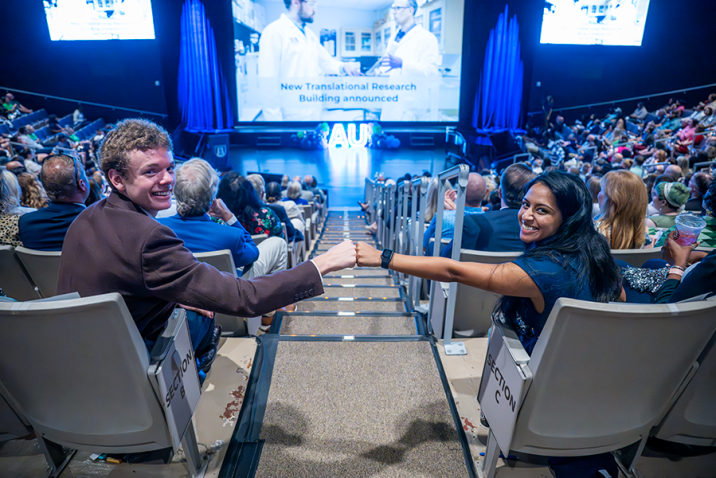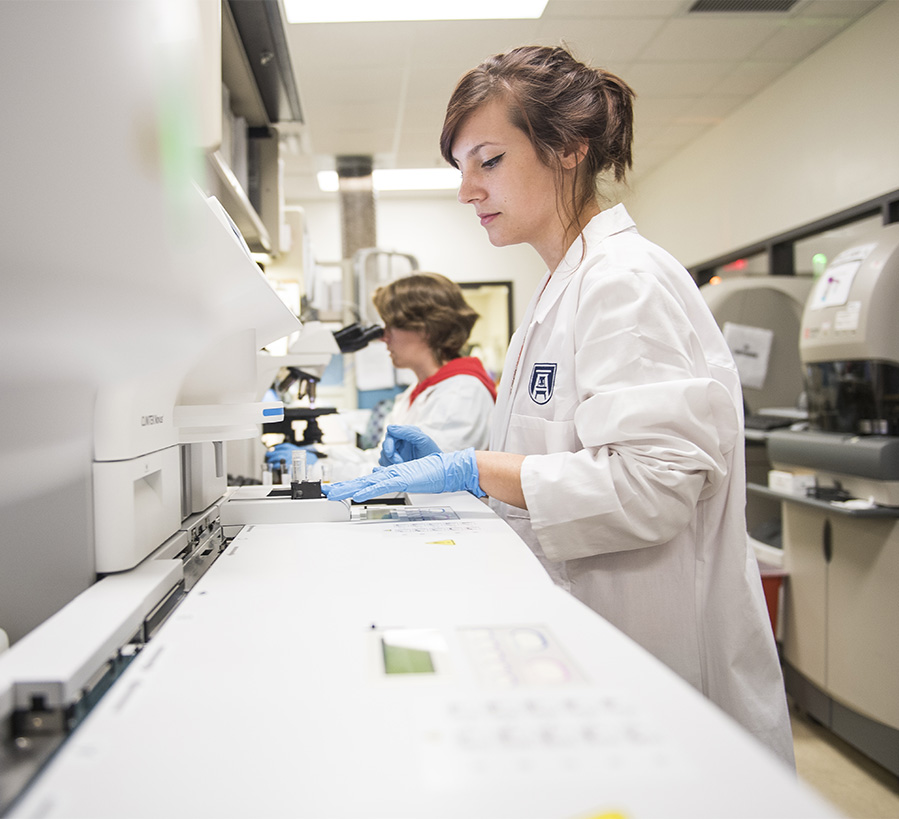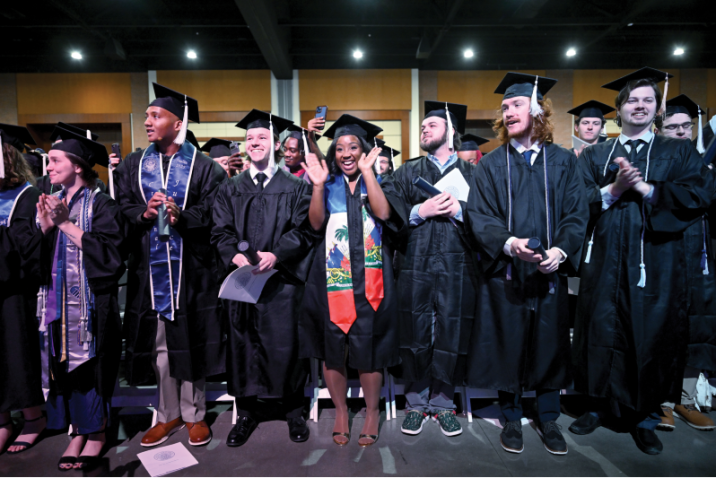Neuroscience
Do you have a passion for exploring the inner workings of the mind and the nervous system? Are you interested in the many ways neuroscience is revolutionizing our understanding of human behavior?
The Neuroscience program at Augusta University is an interdisciplinary program that draws from all College of Science and Mathematics departments. Whether you plan to seek an advanced degree, enter a professional health care program, or move directly into the science-based workforce, students will be prepared for a variety of career pathways.
The field of neuroscience is one of the most fascinating and rapidly evolving subjects in science. With breakthroughs in technology and the understanding of the brain, studying neuroscience can provide students with a deep understanding of human behavior, cognition, and the nervous system. Pursuing a bachelor's degree program in neuroscience can offer many benefits, including access to exciting research opportunities, a varied and stimulating curriculum, and a highly versatile degree that can lead to a broad range of careers in fields such as medicine, psychology, education, and more. In addition to providing a solid foundation in biology, chemistry, and psychology, a neuroscience degree can also help students develop critical thinking, problem-solving and research skills that are highly valued by employers.
Neuroscience is for you if you consider yourself
Life-Changing
Life-Saving
Education
Want to learn more about the Neuroscience program at Augusta University?
Request InfoWhat You'll Study
Coursework
The BS in Neuroscience program is designed to train students in the fundamental principles of nervous system structure and function. This curriculum includes classes on molecular, cellular, physiological, behavioral, and cognitive elements of neuroscience. During this program students will complete a research component with a researcher in the field of neuroscience so that they can apply their coursework to real-world applications while gaining valuable lab experience that employers and graduate programs deem essential.
Experience-based Education
Outside the Classroom
A diverse array of research projects offer exciting hands-on experiences that enhance
resumes and develop valuable skills.
The Transdisciplinary Research Initiative in Inflammaging and Brain Aging (TRIBA)
at AU provides opportunities for students in this program to work with neuroscientists
researching real world problems. The emphasis on research means graduates leave the
program with practical lab experience employers and graduate schools are looking for.
A number of awards recognize student success and celebrate academic achievement.
Research & Innovation
Whether you’re an undergraduate or graduate student, you’ll have opportunities to create your own research projects or work with faculty to tackle some of the world’s most complex and pressing challenges.
New Home
A new, state-of-the-art building with 22 teaching labs, a tutoring center and a top floor dedicated to research is located on the Health Sciences Campus, maximizing educational and research opportunities.
Learning Community
The College of Science and Mathematics’ living learning community helps incoming freshmen thrive during that critical first year of college by offering a supportive network of like-minded students and plenty of engagement opportunities.
Tutoring Center
A tutoring center specifically for science and math students is located on the Health Sciences Campus, with similar help also offered at the Academic Success Center on the Summerville Campus.
Your Future
Career Options
Students who major in neuroscience have a wide range of career opportunities available to them. Many students pursue graduate programs in neuroscience or related fields, such as psychology or biology, which can lead to careers in research, academia, or healthcare. Others may choose to pursue careers in pharmaceuticals, working in drug development or clinical trials. Neuroscience majors also qualify for careers in education, science journalism, government agencies, and consulting firms. Students with a strong background in neuroscience may find opportunities in fields like artificial intelligence, robotics, and machine learning.
The average starting salary for a graduate majoring in Neuroscience is $50,638, with excellent job security and growth predicted over the next five years. The highest-paying careers that graduates go into are neurosurgery, neurology, psychiatry, medical consultancy, and data science. With such a diverse range of career opportunities, neuroscience majors are in a great position to apply their knowledge and skills to various fields and make significant contributions to society.
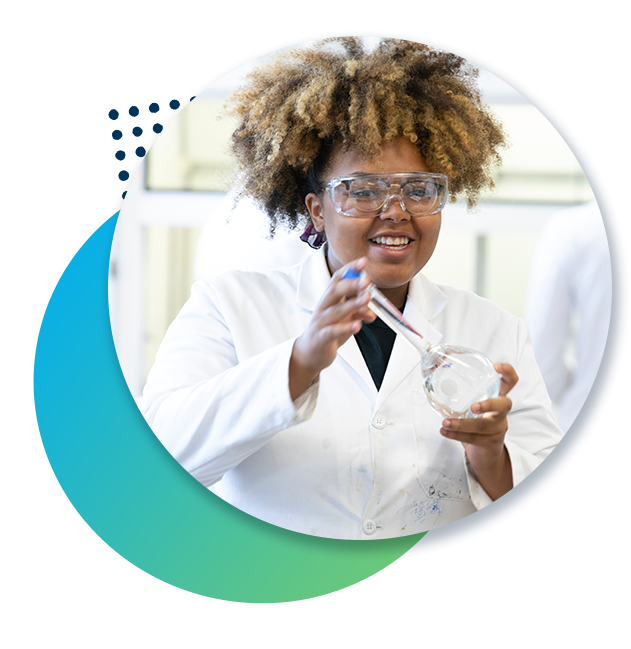
Why Augusta?
As Georgia’s only Health Sciences Center of Excellence, students have the chance to apply for the BS-MD or BS-DMD programs as well as follow pre-professional programs that prepare them for continuing their academic journey.
An emphasis on research means graduates leave the program with the practical lab and field experience employers and graduate schools are looking for.
A full range of student support services exist to make sure that students have the opportunity to find assistance, advice or mentorship.
A new building in the heart of the Health Sciences Campus puts Neuroscience students in the middle of the university’s research enterprise, maximizing opportunities for internships and mentorships.
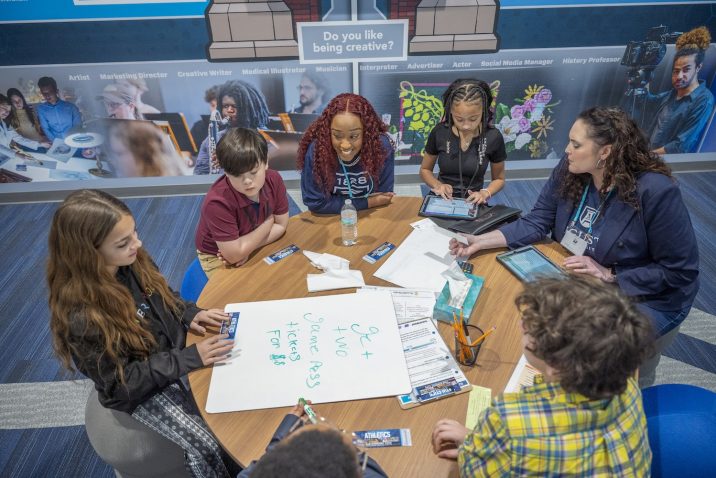
AU earns Carnegie Elective Classification for Community Engagement
AU earns Carnegie Elective Classification for Community Engagement